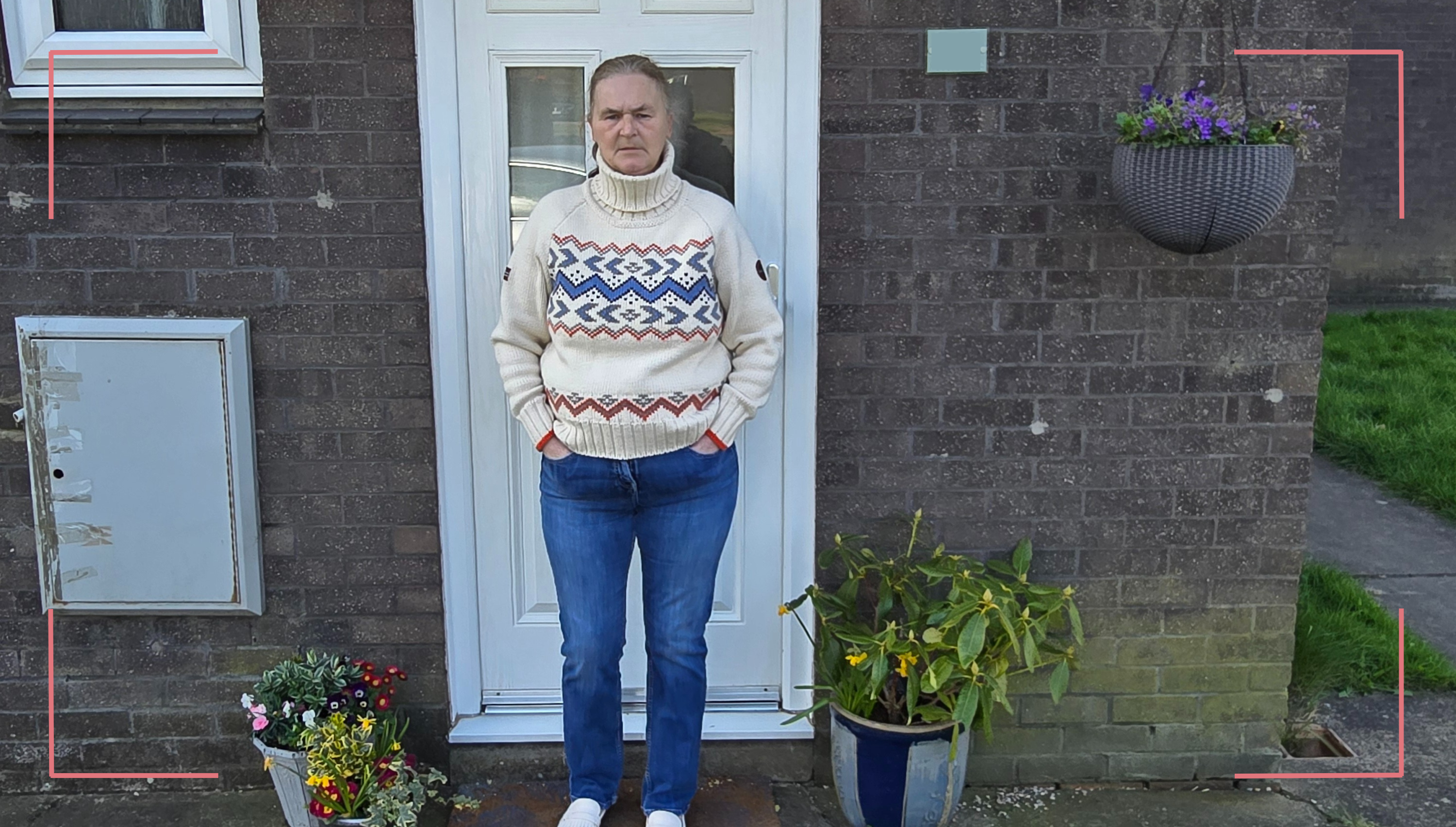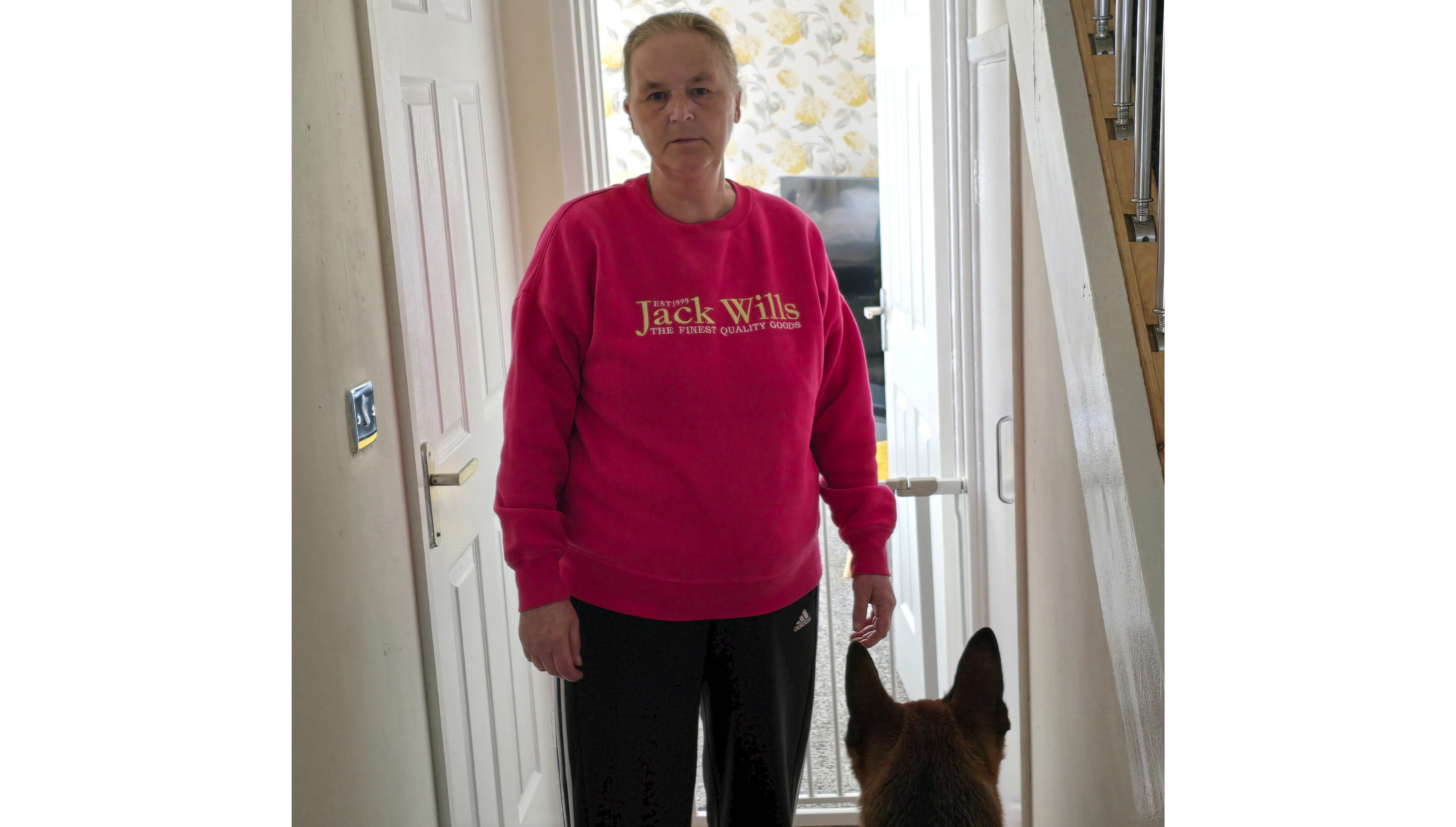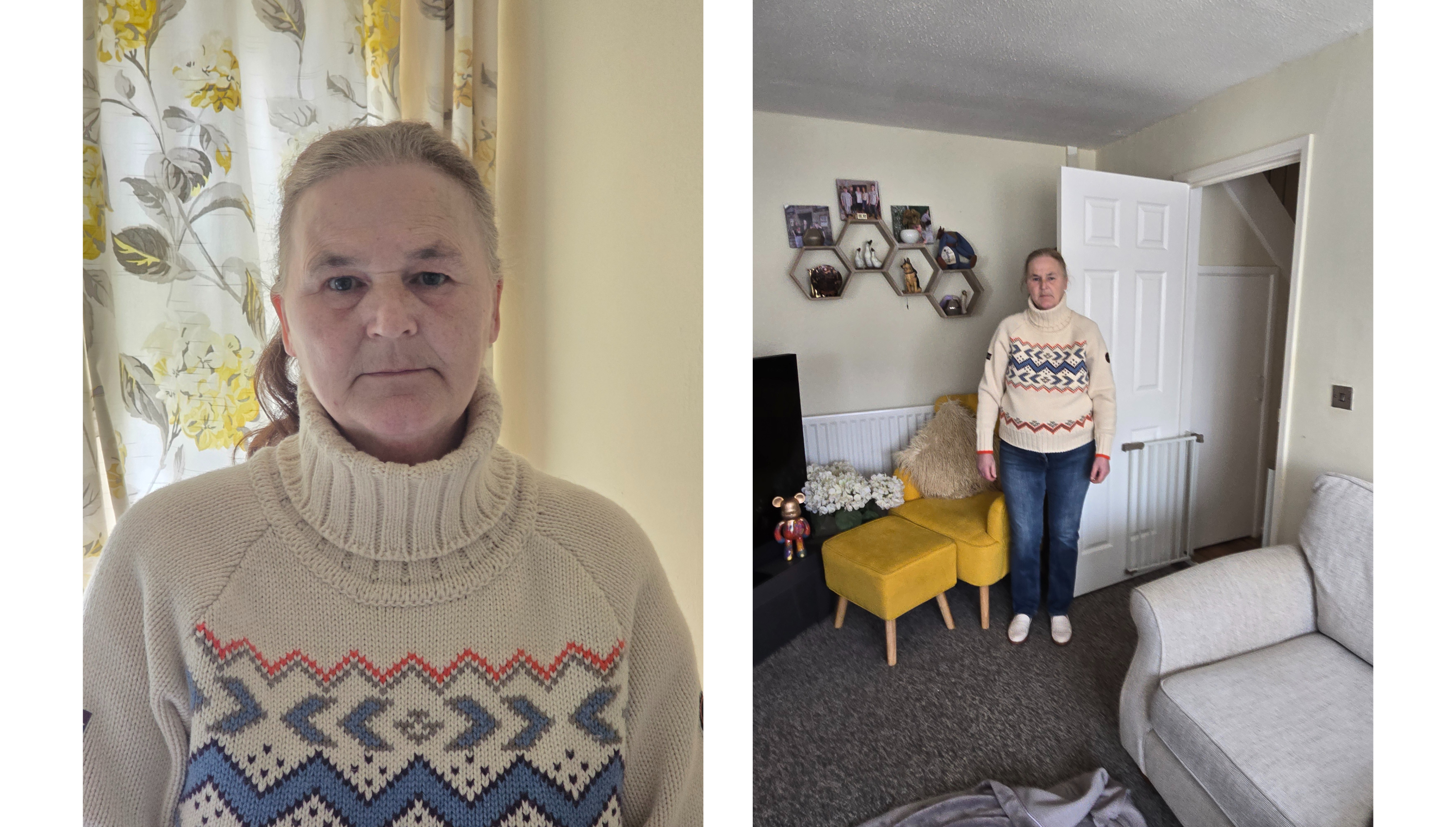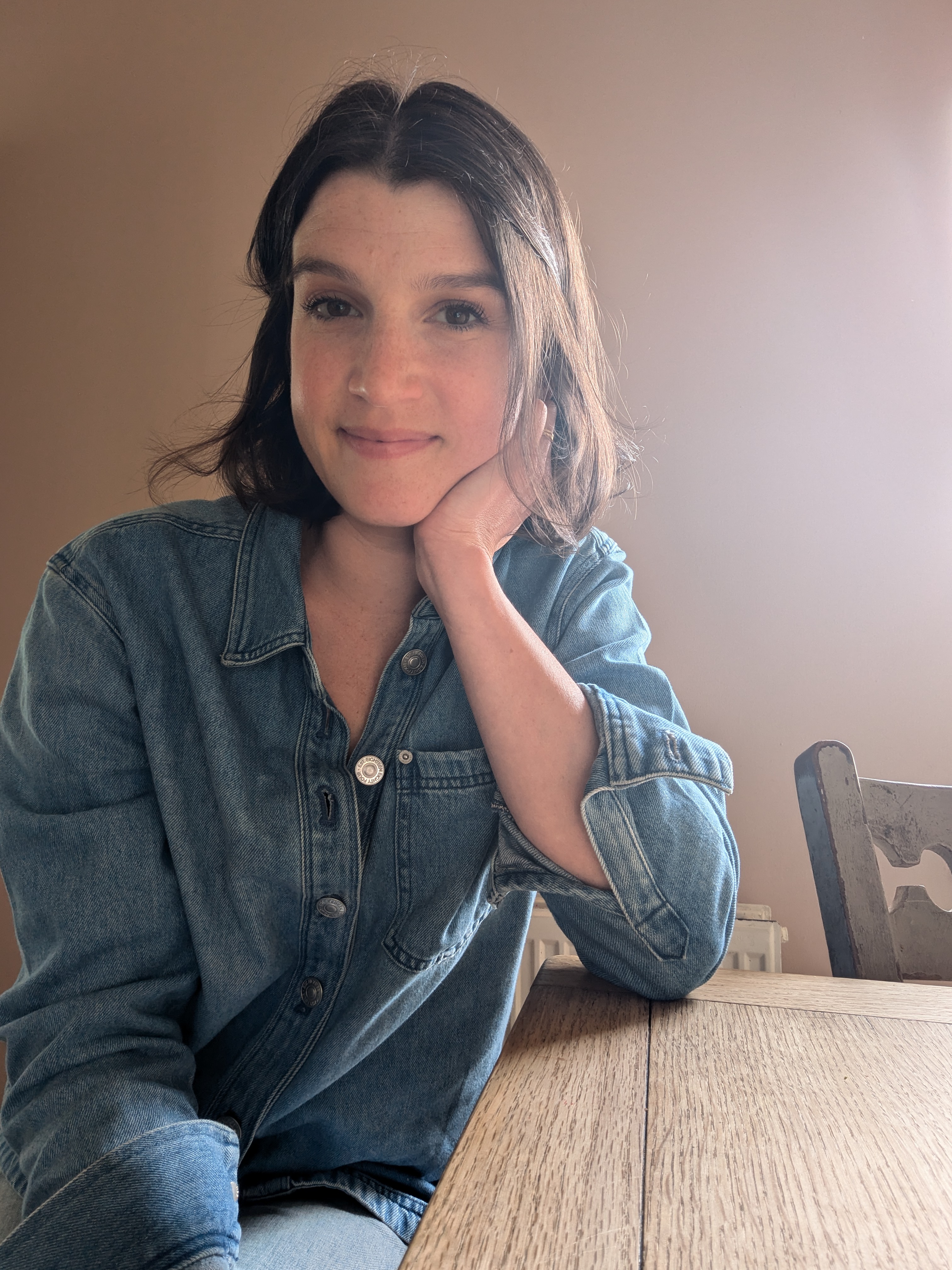“I’d planned on spending my retirement travelling. Instead, I became my grandchildren’s guardian overnight”
Korreena* explains why kinship carers, who raise a friend or relative's child when their parents cannot, need more financial and emotional support


Sign up to our free daily email for the latest royal and entertainment news, interesting opinion, expert advice on styling and beauty trends, and no-nonsense guides to the health and wellness questions you want answered.
You are now subscribed
Your newsletter sign-up was successful
Want to add more newsletters?

Daily (Mon-Sun)
woman&home Daily
Get all the latest beauty, fashion, home, health and wellbeing advice and trends, plus all the latest celebrity news and more.

Monthly
woman&home Royal Report
Get all the latest news from the Palace, including in-depth analysis, the best in royal fashion, and upcoming events from our royal experts.

Monthly
woman&home Book Club
Foster your love of reading with our all-new online book club, filled with editor picks, author insights and much more.

Monthly
woman&home Cosmic Report
Astrologer Kirsty Gallagher explores key astrological transits and themes, meditations, practices and crystals to help navigate the weeks ahead.
“While my grandchildren were all safely tucked away in beds above me, I lay on the couch trying to stifle my cries so they couldn’t hear,” begins Korreena*, 62. “I thought about the food bank I had just accessed for the first time, ashamed that it had come to this.
“For years, my husband and I had dreamt of disappearing off in our newly purchased caravan to travel the world together. We’d downsized our home and saved all our pennies in preparation for our adventures.
“But my life plans changed when I got a phone call at work from social services three days before Christmas 2017. They told me my four grandchildren had been removed from my daughter’s care. It was totally out of the blue.
“I asked social services to meet me at my house with the children, but they said they were already there. When I got home, nobody from social services was there to explain what was happening. My four grandchildren, ages five, nine, 10 and 13, had been left by social services with my other 18-year-old grandson, who was at my house at the time.
“It wasn’t until the next day that I found out what had happened – social services had assessed that my daughter could no longer take care of my grandchildren due to neglect. The children’s only options were to go into foster care or be taken in by me and my husband. I didn’t think twice about it – of course, they’d stay with us.“
Taking the grandchildren into our home

“The kids were in shock,” Korreena continued. “They didn’t understand what was going on or why they were at my house.
“Many nights in those early weeks and months, I woke up to their screaming. I’d run upstairs to comfort them as they suffered with night terrors.
Sign up to our free daily email for the latest royal and entertainment news, interesting opinion, expert advice on styling and beauty trends, and no-nonsense guides to the health and wellness questions you want answered.
“I was just as confused as they were. Having never interacted with social services, it was all new to me. A social worker did DBS checks on us and searched our cupboards to make sure we had enough food. We weren’t given any food, clothing, bedding or toys for the kids. They only came with the clothes on their backs.
“To accommodate the kids in our three-bed, one-bath house, my husband and I slept in the living room. I was on the couch, and he was on a camping bed. We carried on sleeping like this for six years.”
We spent our savings to meet the kids’ needs

“After six weeks of the kids living with us, I had to stop working. This was a huge financial loss. But I couldn’t manage all their appointments and emotional needs while working full-time. My husband went from being a part-time to a full-time forklift driver to compensate for the lost income.
“I was struggling to make ends meet, forced to go to a food bank on several occasions – something I had never done before. It felt degrading after having spent decades financially providing for our own family.
“When my elderly mother found out I had been using food banks, she immediately started sending us bags of shopping. My other family members chipped in too, giving me clothes and bedding for the children.
“For seven months, we had no support – emotional or financial – from the local authority or social services. It was such a hard time.
“I learnt to count pennies and budget for everything we spent. We used up our savings to pay for the kids’ needs. It was devastating after working so hard to put money away for the future.
“I requested financial help from social services in summer 2018, desperate for help, and was told to apply for a Special Guardianship Order. When it was accepted, we were given £3,000 each quarter to help with the kids. It was a huge relief, a weight lifted. But it only lasted for two years. I believe this funding should be offered to Kinship carers until the children turn 18."
Grieving the life I didn’t have

“I love my grandchildren, but I’d often cry at night when they had gone to sleep, bereaved my old life no longer existed and my future life wasn’t going to look how I had imagined.
“We were briefly on Universal Credit, but my husband found another job that paid better, so we were no longer entitled to benefits. I started working part-time to make ends meet.
“Every time the children outgrew a uniform or a pair of shoes, I winced. It was another expense we’d have to find a way to pay for. School trips were a source of anxiety, too.
“Every week, I made a food plan, only buying what we absolutely needed to make nutritious meals for the kids.
“Unlike foster carers (who are incredible), kinship carers have no time to prepare for the arrival of children. Not only are we unexpectedly dealing with the new routines and the emotions of the kids, but we’re also trying to sort out how to provide financially. We’re the backbone of the care system, but we aren’t paid.
“Despite what they’ve been through, my grandchildren have adapted well to their new life. One of them is even heading to university in September.”
“Kinship carers are unsupported”
The UK charity Kinship, which supports people who have agreed to take care of relatives’ or friends’ children when their parents can’t, is urging the government to increase funding and support for kinship carers.
Kinship carers have been found to contribute more than £4.3 billion per year to the economy by caring for children, many of whom would otherwise be in the care system, “yet most are left unsupported by the government,” Dr Lucy Peake, CEO of Kinship, said in a statement. So, Korreena’s startling story is sadly not uncommon.
“When a kinship carer steps up to raise a family or friend's child, they do it with love. But love alone doesn’t pay the bills; it is not enough to pay for the extra costs they need to cover - the things every child needs while growing up: food, clothes and school uniform.”
To learn more or to get involved in supporting or campaigning on behalf of Kinship carers, visit the Kinship website.
*Korreena’s last name has been withheld to protect the privacy of her and her grandchildren

Lauren Crosby Medlicott is a freelance journalist based in Wales.
When she isn't writing, she's either having a cappuccino, chasing after her three kids, walking in the mountains, or buried in a book.